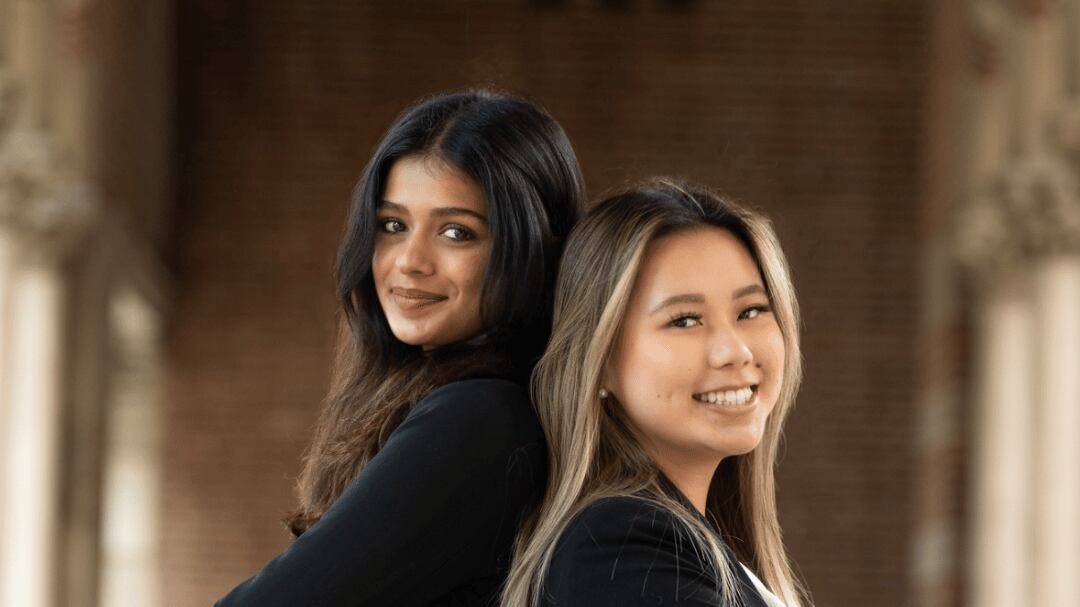Presidential candidate Divya Jakatdar and vice presidential candidate Michelle Lu have built their platform on promises of greater inclusivity and diversity for the student body. Despite that, the candidates have proposed tacking on an additional fee of $200 per semester per student as one possible solution to the shared rides controversy on campus
For context, a hot topic of interest amongst students is the issue of reverting back to the free Lyft model, or “Fryft,” compared to the current model of shared lyfts. During the pandemic, LA County banned the original shared ride model, forcing the USC to adopt a single rider program, which students say it’s safer, faster and more convenient. The candidates proposed three potential ideas, one of them being tacking on an additional $200 per semester to students’ tuition, which they claim would fund the costs of Fryfts and free shuttle rides to LAX.
“Of course, the concern there is (is) who wants to pay $200 more a semester in fees, [but] at the same time, financial aid packages increase as a percentage,” Jakatdar said. “So since it’s a fee, it wouldn’t be that necessarily you would be taking on the whole burden of the $200 per semester.”
Students who pay full tuition and who are ineligible for financial aid would still pay the full $200 fee. This proposal also depends on financial aid packages increasing for students who are on financial aid.
While Jakatdar argued that students will likely not feel the impact of an additional $200 on top of USC’s tuition costs, the university has been called out in the past for its financial aid. Just last year residential assistants went on strike for having their financial aid reduced due to free housing.
Jakatdar, a third-year political science student, and Lu, a second-year business administration student are both women of color, with Jakatdar also identifying as a part of the LGBTQ+ community and Lu being a first-generation student. They used these aspects of their identities to promote their campaign values, honing in on advocating for marginalized communities as significant parts of their political campaign.
The team also plans on integrating the USC ID card onto mobile devices for easier access, an initiative that Lu has been working on for the past two years, where the senator met with administrative officials. According to Lu, the budget is already lined up.
The two are also working on a venture designed to create a directory that would allow students to compare housing in the area in order to ensure that they are signing onto the ones that fit their needs the most. The two want to enforce this plan with their existing partnership line with USC Housing.
Jakatdar is a member of a sorority, and when asked about diversity and equity in Greek life, Jakatdar acknowledged the lack of diversity, stating the panhellenic organizations have “a variety of issues” but failed to provide a cohesive answer when asked what she would do as a USG member to improve the system.
Instead, the presidential candidate only focused on the efforts taken by her sorority to improve diversity, equity and inclusivity (DEI), rather than naming the steps she would take as a USG official.
When asked about a potential conflict of interest if Jakatdar was to become President as a member of a sorority, she remained staunch in her position to hold individuals accountable for their actions.
“I just want to be very clear that my morals are completely always going to be on the side of justice and DEI,” she said.
When it came to the issue of transparency, Lu also shared that their campaign aimed to increase transparency for funding issues.
“One of our goals, our platform goals, is to make non-confidential communications with the administration and with the USC publicly available to the general public or student population,” Lu said. “Obviously, there are some things we can’t show, but we want to revamp the entire USC website [for] transparency on our projects.”
Hand in hand with greater transparency, Jakatdar responded to opinions that USG lacks impactful change by disagreeing with the claims, citing the original Fryft program as an idea that was accomplished through USG.
“I get it, though, I don’t think we advertise honestly what we’ve done enough,” she said. “I think the general idea is that we just want to make life easier for our students and doable because some of these projects that appeal to everyone will make it more convenient for some students, but some of these are really going to change the quality of life for a lot of our students, and we’re guided by that goal.”
